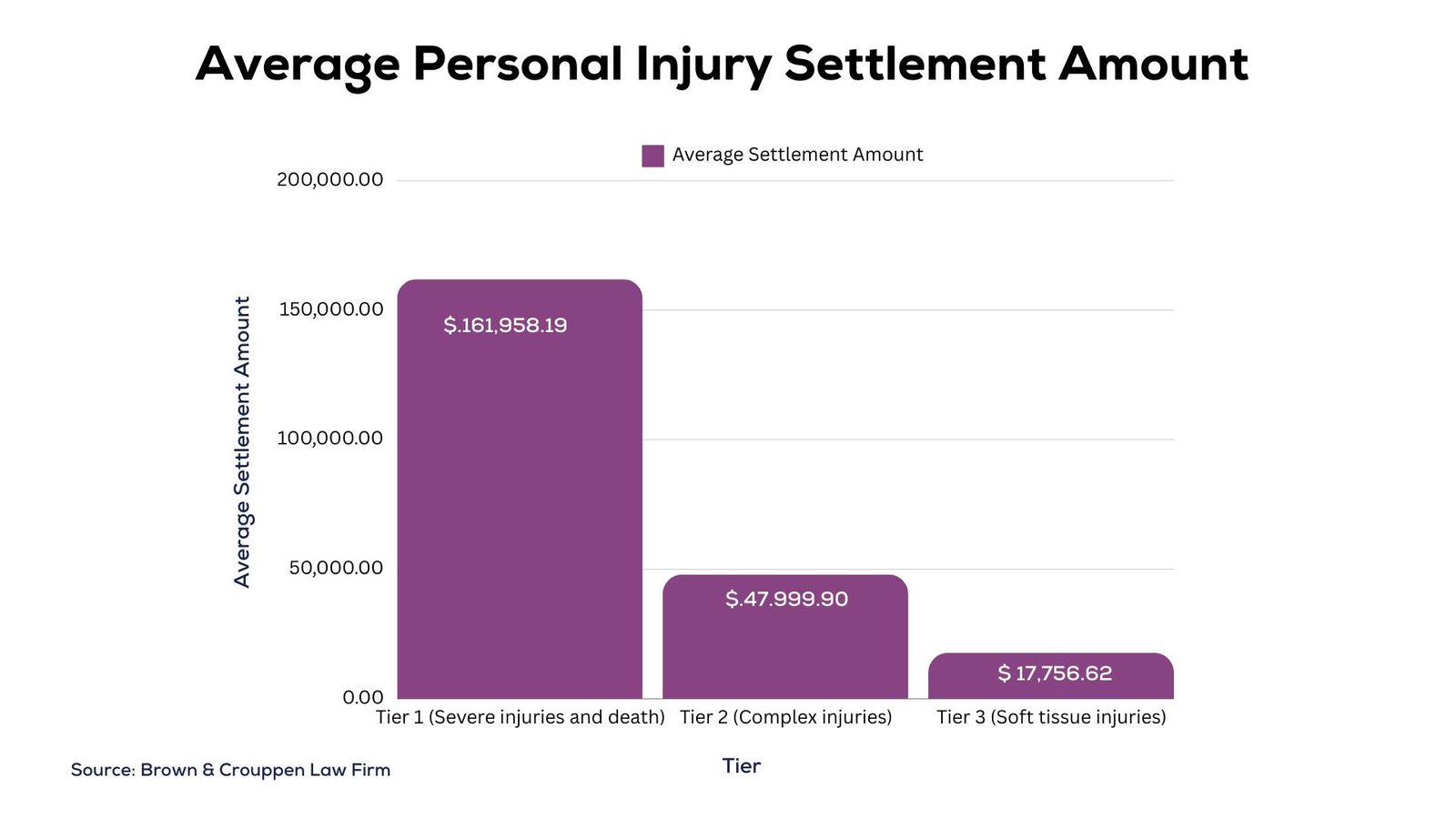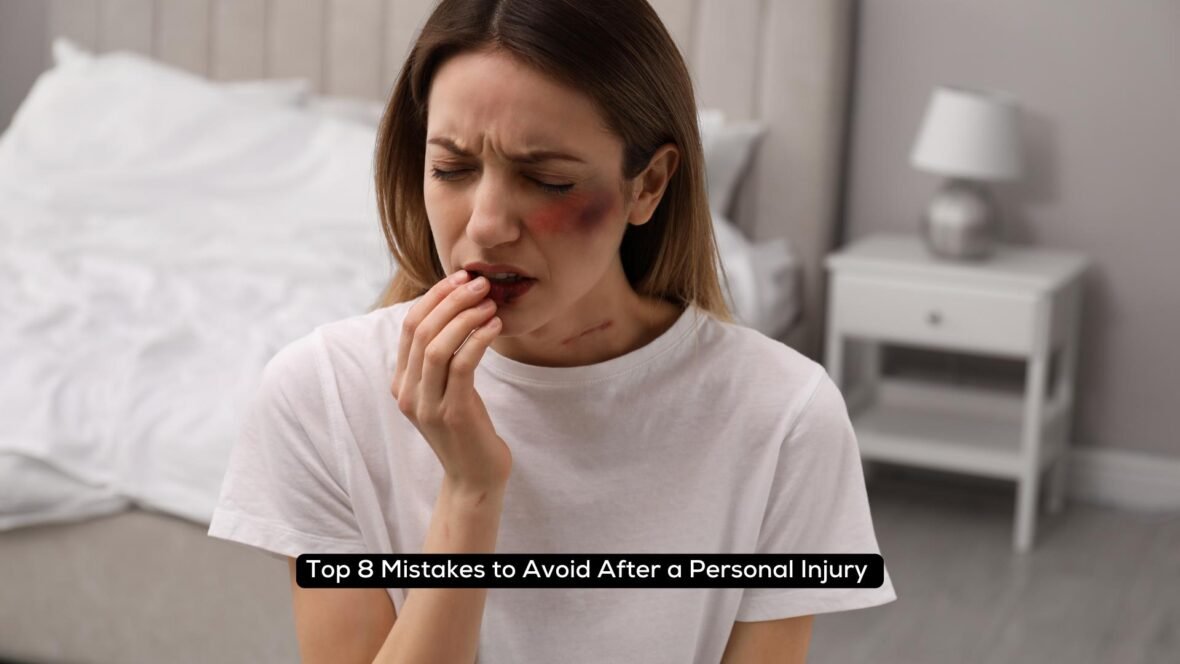Suffering a personal injury can be a traumatic experience, but the decisions you make in the aftermath can either pave the way to justice or lead you down a path of costly mistakes.
Navigating the aftermath of a personal injury can be an overwhelming and daunting experience. The decisions you make immediately following the incident can significantly impact the success of your claim. To help you avoid common pitfalls, we’ve compiled a comprehensive guide that delves into the critical missteps to steer clear of. Let’s dive right in:
1. Downplaying Your Doctor’s Words: A Perilous Oversight
When you’re injured, your doctor’s advice becomes your roadmap to recovery. Ignoring or underestimating their recommendations is a high-stakes gamble—not only for your health but also for the integrity of your claim. Insurance companies may view missed appointments or disregarded treatment plans as evidence that your injuries are less severe than claimed.
Remember, adhering to medical guidance is not just about healing physically; it’s also a cornerstone of your legal strategy. It forms an unassailable foundation from which to build your case. Neglecting your doctor’s orders can undermine your credibility and weaken your claim, potentially leading to a reduced settlement or even a dismissed case.
2. Silence is Not Golden: Legal Guidance Neglected
In the labyrinth of personal injury law, failing to consult top injury lawyers is akin to sailing uncharted waters without a map. Engaging in a pivotal dialogue with legal professionals opens doors to understanding your rights and the nuances of your case.
Seasoned attorneys can anticipate insurer tactics and fortify your claim against them. Seeking counsel early on isn’t just prudent; it’s a decisive move toward claiming the justice you’re entitled to.
By neglecting legal guidance, you may inadvertently say or do something that jeopardizes your case. Experienced attorneys can guide you through every step, ensuring you avoid missteps and maximize your chances of obtaining fair compensation.
In states like South Carolina, the personal injury landscape can be particularly complex, with intricate laws and regulations that demand a deep understanding of the local legal system. Navigating this intricate terrain without proper counsel can prove challenging and potentially detrimental to your case. This is where seeking out South Carolina personal injury attorneys becomes crucial. These legal professionals have in-depth knowledge of the state’s personal injury laws and can provide tailored guidance to help you navigate the process effectively, safeguarding your rights and maximizing your chances of obtaining fair compensation.
3. Social Snags: The Online Misstep
Tread cautiously with social media after an accident that leaves you injured—it’s a minefield in disguise, and not just for criminal defense cases. What may seem like an innocent update to friends could unravel your injury case thread by thread?
Discretion is paramount; consider social media abstinence while your claim is pending. This silent period protects the narrative of your experience from being distorted by out-of-context snapshots of everyday life.
Even seemingly harmless posts or photos can be used against you by insurance companies to minimize or deny your claim. Social media activity can be interpreted as evidence that your injuries are not as severe as you’ve claimed, potentially reducing the value of your case.
4. Rushing the Process: The Quick Settlement Pitfall
Patience is more than a virtue after an injury; it’s a tactical advantage. The allure of a quick settlement can be compelling, especially amidst financial pressure and the desire for closure. However, accepting the first offer is often a misguided sprint to a resolution that undervalues your claim.
Insurers bank on your urgency to settle swiftly and economically. By resisting this urge and allowing time for a thorough evaluation of your damages—guided by legal counsel—you safeguard your right to adequate compensation that reflects the full extent of your injuries and losses over time.
Rushing into a settlement can leave you with insufficient funds to cover ongoing medical expenses, lost wages, and other long-term costs associated with your injury. It’s crucial to have a clear understanding of the full scope of your damages before accepting any offer.

5. Record-Keeping Gaps: The Documentation Slip
A meticulous trail of documentation acts as the spine of a personal injury claim. Receipts, medical reports, and a detailed account of your pain and suffering compose a compelling narrative of your ordeal. Neglecting to collect or organize these critical pieces can weaken your position, leaving gaps that insurers may exploit.
Remember, every detail matters, and maintaining thorough records ensures that your claim stands on solid ground. Keep a detailed log of your injuries, medical treatments, and any expenses incurred as a result of the accident. This documentation serves as indisputable evidence of the impact the injury has had on your life and helps substantiate your compensation claim.
6. The Importance of Timely Reporting
Swiftly reporting your injury to relevant parties—such as employers, landlords, or authorities—is crucial. Delayed reporting can weaken your case and raise doubts about the legitimacy of your claim. It’s essential to document the incident as soon as possible, while the details are fresh in your mind.
Timely reporting creates an official record of the incident, establishing a clear timeline and strengthening your credibility. It also ensures that any evidence, such as surveillance footage or witness accounts, is preserved before it’s lost or forgotten.
7. Documenting the Scene: A Step-by-Step Guide
Detailed documentation of the accident scene is pivotal. Here’s a step-by-step guide on what to capture:
Photographs: Take pictures of the scene from multiple angles, capturing any hazards, obstacles, or contributing factors that led to your injury. Be sure to photograph any visible injuries as well.
Physical Evidence: Collect and preserve any relevant physical evidence, such as the clothing you were wearing or the defective product that caused your injury. Proper handling and storage of evidence are crucial to maintaining its integrity.
By thoroughly documenting the scene, you create a comprehensive record that can be used to recreate the events and support your case.
8. The Role of Expert Witnesses
Expert witnesses can significantly bolster your case. These professionals provide credible testimony that can validate the extent of your injuries and the circumstances surrounding the incident.
Accident reconstructionists: These experts analyze the scene and use scientific principles to determine how the accident occurred. Their detailed reports and courtroom testimony can establish fault and cause.
Medical Experts: Physicians, therapists, and other healthcare professionals can provide expert testimony on the nature, extent, and prognosis of your injuries. Their insights can help quantify the long-term impact of your injuries and support claims for future medical expenses.
They investigate how your injuries impact your ability to work and earn a living, which can factor into your claim for lost wages and future earnings. Their analysis can help establish the financial consequences of your injury.
By enlisting the right experts, you can strengthen your case with authoritative, objective evidence that insurance companies and courts respect.
Frequently Asked Questions
Q: How soon should I consult a personal injury lawyer after an accident?
A: It’s advisable to seek legal counsel as soon as possible. Early consultation allows attorneys to assess your case, guide you through the process, and protect your rights effectively. Waiting too long may jeopardize crucial evidence or legal deadlines.
Q: Can I discuss my injury case on social media?
A: While it’s tempting to share experiences online, refrain from discussing your case or posting photos related to your injuries. Insurers monitor social media, and seemingly innocuous posts can harm your claim. Remember, what you say online can impact your legal standing.
Q: Is accepting the first settlement offer a good idea?
A: Generally, no. Quick settlements often undervalue your claim. Consult with an attorney to evaluate the offer and negotiate for fair compensation. An experienced lawyer can help you assess the long-term impact of your injuries and ensure you receive adequate restitution.
Conclusion
The road to recovery after a personal injury is paved with legal complexities and potential pitfalls. By steering clear of the mistakes outlined in this guide—downplaying medical advice, neglecting legal counsel, indiscreet social media activity, rushing into settlements, and neglecting documentation—you can protect your rights and maximize your chances of obtaining fair compensation.
Arm yourself with knowledge, exercise patience, and trust in the experience of legal professionals to navigate this challenging process successfully.


